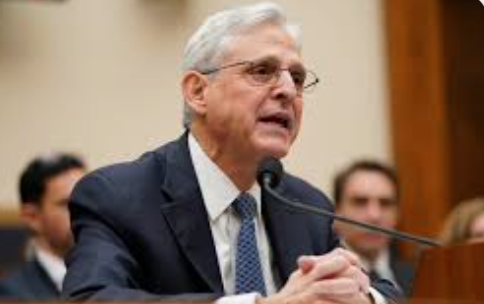
Will Merrick Garland support or hinder marijuana reclassification?
Attorney General Merrick Garland has turned the residential real estate industry on its head, so what will he do with the burgeoning cannabis market?
In the last election, then-candidate Biden promised to help the cannabis industry. It took a while, and it wasn't until his re-election campaign that the administration made any significant progress. It wasn't until the end of the month that the DEA began the feedback process to reclassify marijuana. This would be a boon for the struggling industry, a benefit for patients, and a huge help for veterans with PTSD. But will Merrick Garland, as US Attorney General, help or hinder marijuana reclassification?
RELATED TOPICS: California or New York, where is the biggest marijuana chaos?
Garland has a reputation for being collegial and diligent on legal issues. He has spent most of his time in court on regulatory issues, giving him a solid understanding of how much of an impact rules and regulations can have on day-to-day operations. He is very thoughtful and understands how decisions can lead to significant changes. Garland has the power to reclassify marijuana, and given the authorities recommending it, it would be unprecedented if he did not do so.
Garland's ruling on the residential real estate market has turned the industry on its head.
The Drug Enforcement Agency (DEA) reports directly to Garland… and it rejected the Department of Health and Human Services' (HHS) recommendation for reclassification. In its decision, HHS recognized the medical benefits of cannabis. It also found that the public health risks posed by marijuana are “small compared to other drugs,” such as heroin (Schedule I), cocaine (Schedule II), benzodiazepines such as Valium and Xanax (Schedule IV), and alcohol (unclassified). Although “marijuana abuse provides clear evidence of harmful consequences, including substance use disorders,” HHS said, these are “less common and less harmful” than the negative consequences of other drugs. It concluded that “the vast majority of individuals who use marijuana do so in a manner that does not result in dangerous consequences for themselves or others.”
But the DEA balked, and Garland used his authority to push the process forward. In an odd move, the proposed rule was published by the DEA and has a DEA file number, but it is signed by Garland, not DEA Administrator Anne Milgram. This clearly shows that the Attorney General has a bigger interest than just leaving it to the DEA.
The Federal Bureau of Investigation (FBI) recently announced that most serious crimes will be on the decline in 2024, following the trend of 2023. One of the reasons put forward against the legalization of marijuana is the potential increase in crime, which the FBI has refuted. In addition, the alcohol and pharmaceutical industries support the change.
RELATED TOPICS: Was there marijuana in the Wild West?
As a professional, Garland seems to understand that modern marijuana is on the road to acceptance. While he is not a cheerleader, he does seem to respect the recommendations, the science and the process.

Post a comment: